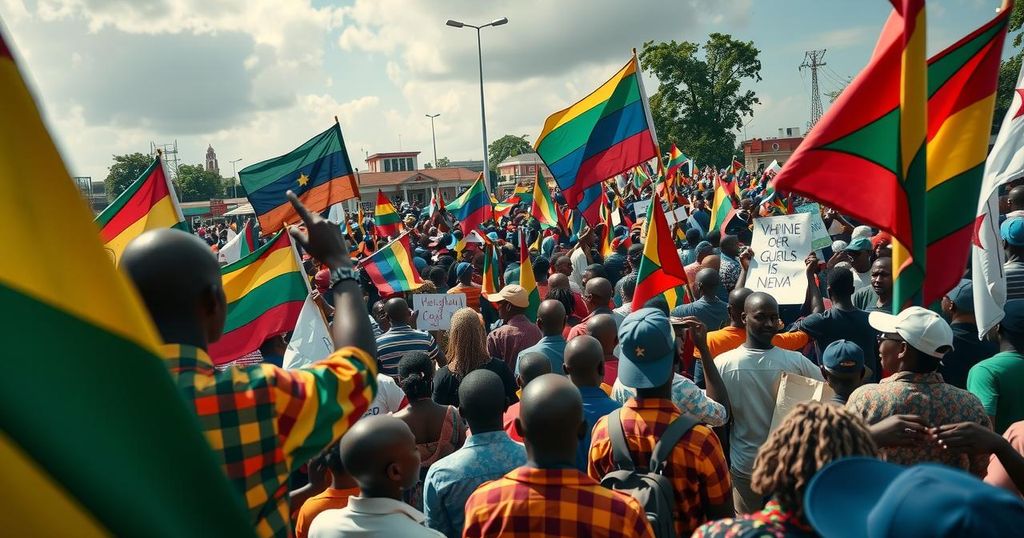Ghana’s Elections: Rising Anti-LGBTQ+ Sentiment and Its Consequences
Ahead of the December elections, Ghana’s leading presidential candidates are promising to enforce anti-LGBTQ+ laws, significantly impacting the rights and safety of the LGBTQ+ community. A proposed bill, set to criminalize same-sex relationships more severely, reflects the pervasive anti-LGBTQ+ sentiment fueled by political agendas. Advocates warn of increased discrimination and violence against this vulnerable population if the bill is passed.
The political landscape in Ghana is being heavily influenced by the anti-LGBTQ+ sentiments as the nation approaches its general elections. Leading presidential candidates are pledging to enforce stringent measures against gay rights, with candidate Mahamudu Bawumia indicating his commitment to sign a controversial bill that imposes severe penalties on individuals identifying as LGBTQ+. Meanwhile, his opponent, John Dramani Mahama, while not explicitly favoring the bill, has advocated for stricter laws against LGBTQ+ activities, heightening fears among Ghana’s already vulnerable LGBTQ+ community.
The proposed legislation, which broadens existing legal definitions to further criminalize LGBTQ+ individuals, carries punitive measures including imprisonment for up to five years for same-sex acts, as well as prosecution of those who identify as non-binary. Additionally, the bill mandates reporting of LGBTQ+ individuals by friends and family, potentially causing estrangement and fostering a culture of fear among LGBTQ+ persons in Ghana.
Societal opinions show a stark disapproval of homosexuality, with an Afrobarometer survey indicating that only 7% of Ghanaians accept same-sex relationships. Religious groups are notably vocal in their opposition to the LGBTQ+ community, labeling such acts as immoral and contrary to cultural values. This widespread sentiment contributes to an increasingly hostile environment, with human rights activists warning that the bill will exacerbate violence and discrimination against LGBTQ+ individuals.
The ramifications of the legislation extend beyond personal safety, significantly impacting the professional landscape for advocates and educators supportive of LGBTQ+ rights, limiting their career prospects in a sector that may adopt regressive policies in response to the proposed law. Concerns about international implications also arise, as the European Union has criticized the bill for contradicting Ghana’s constitutional and human rights obligations, warning that adherence to the bill may jeopardize foreign aid.
Ghana has a long-standing history of anti-LGBTQ+ sentiment deeply rooted in its social and cultural fabric, further intensified by political maneuvering. The impending general elections reveal a troubling trend where candidates exploit these sentiments to garner votes. The recent parliamentary bill seeks to criminalize same-sex relationships comprehensively and reflects a growing public disdain for LGBTQ+ individuals, despite existing laws already imposing penalties for homosexuality. The intersection of politics, public opinion, and international criticisms creates a complex backdrop for the LGBTQ+ community in Ghana.
The upcoming elections place Ghana’s LGBTQ+ community in a precarious position as they navigate competing political promises that threaten their rights and safety. With both main political candidates pursuing anti-LGBTQ+ agendas, the potential criminalization of LGBTQ+ identities looms large. If the proposed bill is enacted, it will likely lead to increased discrimination and violence, further alienating a marginalized community. The situation underscores the urgent need for advocacy and international support to uphold human rights for all individuals in Ghana.
Original Source: www.voanews.com




Post Comment